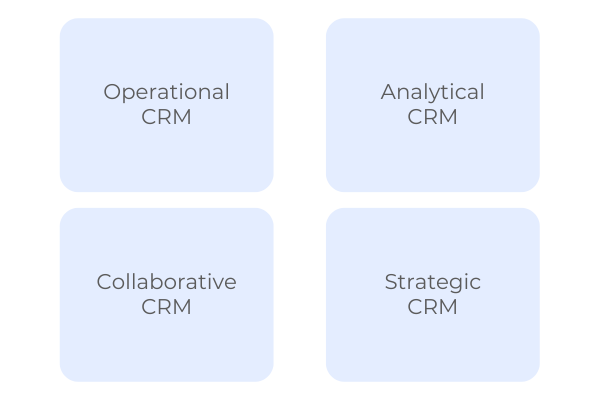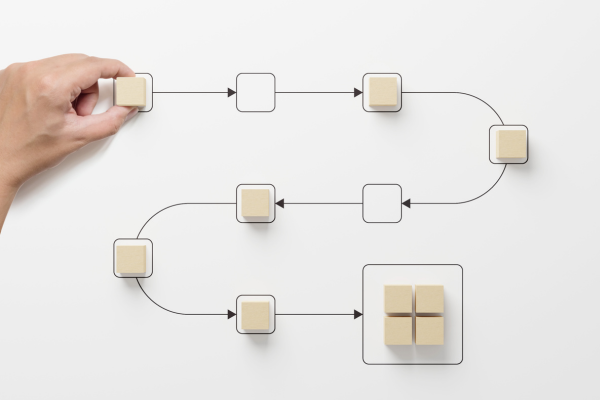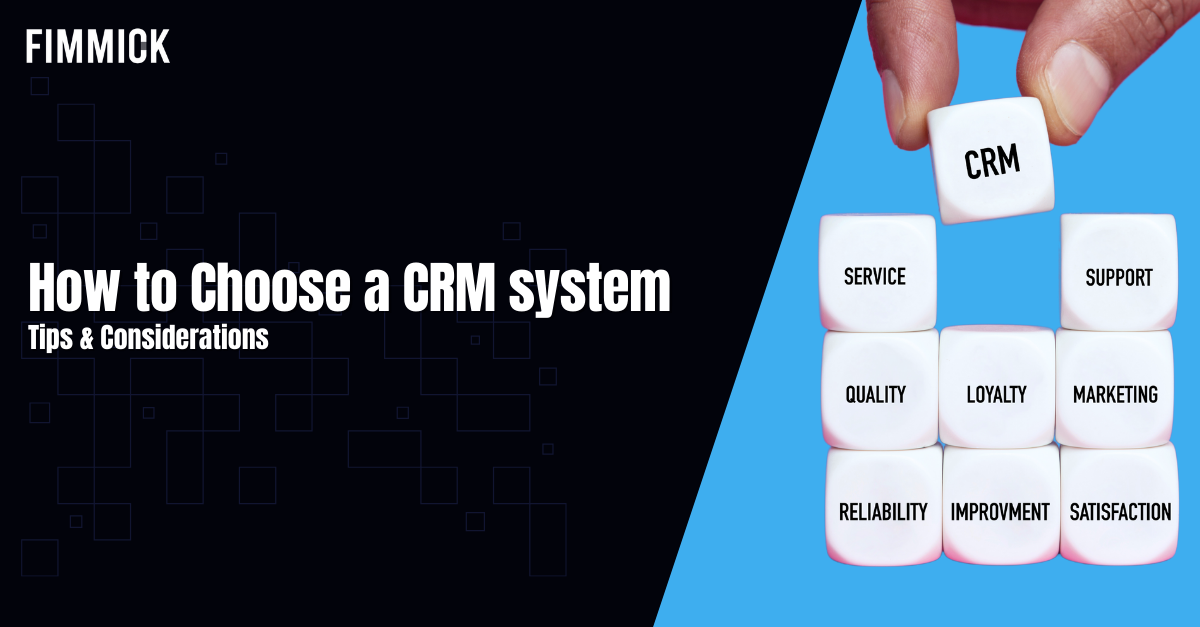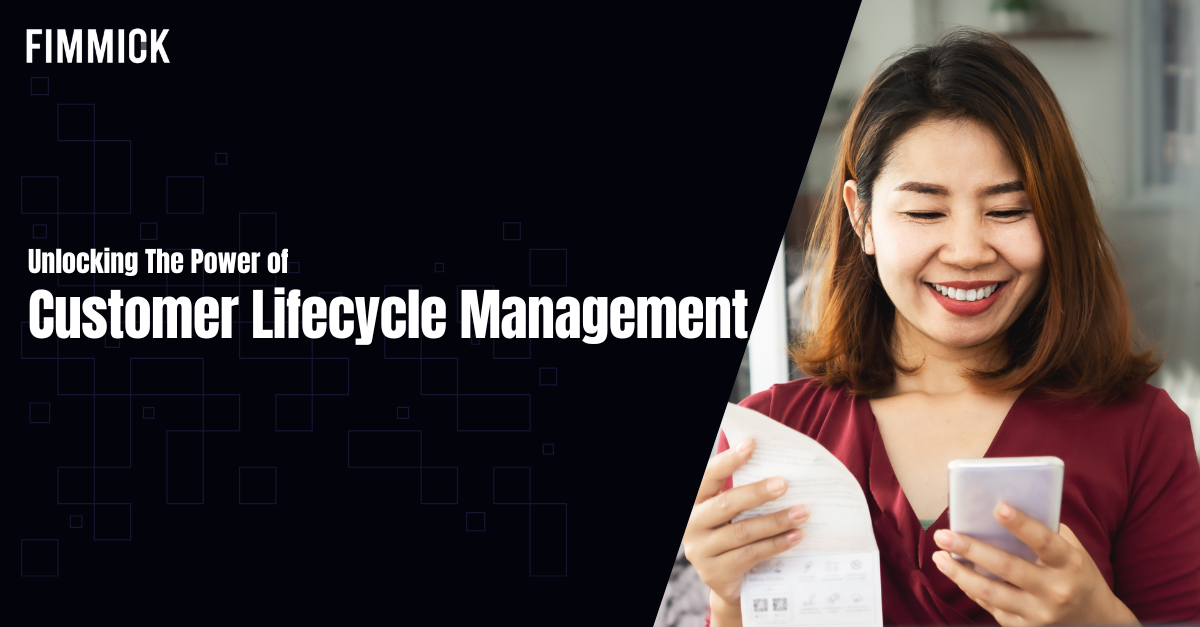CRM: How to Choose a CRM system – Tips & Considerations
Reading Time: 8 min
Ready to streamline your customer management and supercharge your sales? Choosing the right Customer Relationship Management system is the first step. This guide provides practical advice and actionable tips to help you navigate the CRM landscape and select the system that best aligns with your business needs.
Why is the Customer Relationship Management system important?
You might be thinking, “Excel works just fine for managing my customer data, so why bother with a CRM?” And you’d be right, to a point. Excel can handle basic customer information. But as your business scales and your customer list grows, Excel quickly becomes unwieldy.
A CRM system provides a centralised platform where everyone on your team can access the latest customer information, fostering more efficient collaboration between different departments. Let’s explore more benefits of using a CRM system.
Centralised Customer Data Management
Tired of wasting time searching for customer information scattered across different files and spreadsheets? A CRM puts everything your marketing team needs in one central location. No more hunting for contact details or digging through old emails.
Improved Sales Efficiency
A CRM system automates numerous tedious workflows, such as sending quotes, tracking sales progress, and setting reminders for important dates, freeing up your time to focus on high-value tasks.
Explore Further: Integrate WhatsApp with CRM to Boost Sales & Efficiency
Deeper Customer Understanding
A CRM system allows brands to track customer interactions, such as products viewed, events attended, and content engaged with, providing valuable insights into customer needs and preferences. This deeper understanding empowers brands to develop more effective marketing strategies.
Explore Further: what-is-trigger-and-drip-marketing
Increased Customer Satisfaction and Retention
A CRM system empowers businesses to deliver more personalised service, such as recommending products based on customer preferences or automatically sending birthday greetings, ultimately boosting customer satisfaction and fostering loyalty.
CRM systems aren’t one-size-fits-all. They’ve evolved to meet the diverse needs and goals of different businesses, resulting in four main types.

Operational CRM
Operational CRMs are all about making your daily business operations run smoother. Think sales, marketing, and customer service – an operational CRM helps automate and streamline these key areas. These core features typically include:

Marketing Automation
By using automated emails, digital ads, and even text messages, you can deliver the right message to the right person at precisely the right time.
Explore Further: What is Marketing Automation
Sales Automation
A CRM empowers sales teams to strategically manage leads, opportunities, and orders.
Customer Service Automation
Provides self-service options, such as chatbots and automated email responses, ensuring customers get the help they need, when they need it.
Analytical CRM
Analytical CRM is like having a dedicated data analyst working behind the scenes. It dives deep into your sales, financial, and marketing data, uncovering hidden patterns and valuable insights. The key components that make up this analytical powerhouse include:
Data mining
Data mining techniques delve deep into customer data, unearthing valuable insights such as buying habits, hobbies, and lifestyle preferences. Armed with this knowledge, you can anticipate their needs, personalise their experiences, and create targeted campaigns that resonate.
Data Warehousing
Data warehouse as a central hub for all your customer information. It gathers data from everywhere – sales, marketing, website traffic, customer service interactions, and more – and puts it all in one easily accessible place. This unified view allows for in-depth analysis and provides a more comprehensive understanding of customer interactions across all touchpoints.
Explore Further: What is Identity Stitching
Collaborative CRM
Collaborative CRM breaks down the walls between departments, fostering seamless communication and a truly unified customer experience. By working together and sharing information, businesses can build stronger customer relationships, boost satisfaction, and ultimately drive loyalty. These core features typically include:

Interactive management
No more missed messages or accidental repeat questions. A collaborative CRM keeps a detailed record of every customer interaction – from emails and phone calls to social media engagements – giving every team member a clear view of the customer journey.
Explore Further: Customer Tagging for CRM – A Guide to Better Data
Channel Management
A CRM’s channel management capabilities track these preferred communication methods, providing valuable insights into how customers prefer to connect. By understanding these preferences, businesses can tailor their outreach and ensure they’re communicating in the most effective way possible.
Strategic CRM
Strategic CRM isn’t just about managing interactions; it’s about building lasting relationships. It digs deep to understand customer preferences and needs, using that knowledge to develop long-term strategies that maximise customer lifetime value. This approach often combines elements of operational, analytical, and collaborative CRMs, adding advanced features like loyalty management and lifecycle management to the mix.
4 Tips for Choosing a CRM System
Budget
From affordable entry-level options to premium, feature-rich platforms, there’s a CRM for every business and every budget. Carefully consider your needs and resources to find the perfect balance between cost and functionality.
Enterprise Size
If you’re a small business, starting with a simple, affordable CRM is often the best approach. Larger companies, however, often require a more robust and customizable solution. Enterprise-grade CRMs offer advanced features, powerful integrations, and the flexibility to handle complex workflows.
Feature need
There’s no one-size-fits-all solution when it comes to CRM. Every business is unique, so choosing a system that addresses your specific needs and pain points is crucial.
Well integration
Seamless integration with your existing business systems is crucial for maximising the effectiveness of your CRM. Ensure your chosen CRM can connect with your email platform, e-commerce tools, accounting software, business intelligence solutions, and other essential applications.
Ease of use
Choose a system that’s intuitive and easy to navigate, so your team can quickly get up to speed and start reaping the benefits.
FIMMICK CRM
FIMMICK CRM is an award-winning customer relationship management agency in Hong Kong. Our comprehensive services include CRM & loyalty programmes consulting and setup, customer journey design, data capture & data analytics, mobile apps and more. All these can be integrated with social media marketing, programmatic ads, chatbot integration, marketing automation, online-to-offline (O2O) solutions and more to offer maximum return on your CRM strategies.

Conclusion
Switching to a CRM doesn’t have to be daunting. With a range of options available, from simple solutions for small businesses to robust platforms for enterprise-level organisations, finding the right fit is easier than you think. Take the first step towards streamlined customer management and explore the world of CRM systems today.
Ready to take your business to the next level? Join us on Facebook and Instagram for more insights and tips on digital marketing, AI, MarTech and data. If you are interested in our services, please contact us!
Related Solutions
Related Articles

CRM: How to Choose a CRM system – Tips & Considerations
Unlock the power of CRM with this comprehensive guide to choosing the right system. Learn about the different types of CRM, key features.

CRM: Unlocking The Power of Customer Lifecycle Management
In this article, we’ll explore Customer Lifecycle Management (CLM) strategies to transform one-time purchases into lasting customer loyalty and brand advocacy.

Ecommerce: 6 Critical Things Ecommerce Startups Often Miss
Launching an online business is exciting, but many startups stumble over critical early steps. Let’s explore the 6 items startups often miss.








